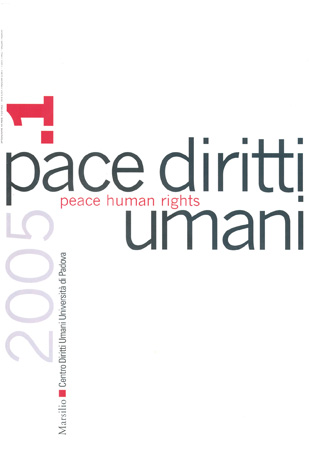Raccolte

La Corte penale internazionale e gli Stati Uniti: un difficile binomio
- Contenuto in
- Pace diritti umani - Peace Human Rights, 1/2005
- Tipologia pubblicazione
- Articolo / Saggio
- Pagine
- 55-88
- Lingua
- IT
The International Criminal Court and the United StatesMatteo Bernareggi
This paper deals with the problematical relationship between the International Criminal Court and the United States. In particular It outlines the main objections the United States has raised with respect to the entry into force of the ICC Statute. Afterwards the article discusses the main three actions the Bush Administration has put forward, at international and domestic level, in order to avoid that US nationals are subjected to the ICC’s jurisdiction. First, the Security Council Resolution 1422 (2002) – renewed as Resolution 1487 in June 2003 – whereby the Council requests the International Criminal Court not to proceed with investigations or prosecutions concerning officials who are participating in UN peacekeeping or authorized missions and that belong to States not Parties to the ICC Statute. Second, the «Article 98 agreements», or so-called «impunity agreements», proposed by the United States and based on Article 98 ICC Statute. Under these agreements an ICC State Party, without the express consent of the United States, could not surrender or transfer an American national to the International Criminal Court. Third, the American Servicemembers’ Protection Act (ASPA), which basically prohibits any US court or agency from responding to a request for cooperation from the ICC, limits the participation of the US Armed Forces in the United Nations peacekeeping or peace enforcement operations, and above all it prohibits US military assistance to any country that is a Party to the ICC unless the President waives that provision as «important to the national interest of the United States», or unless that country enters into an impunity agreements with the United States.

